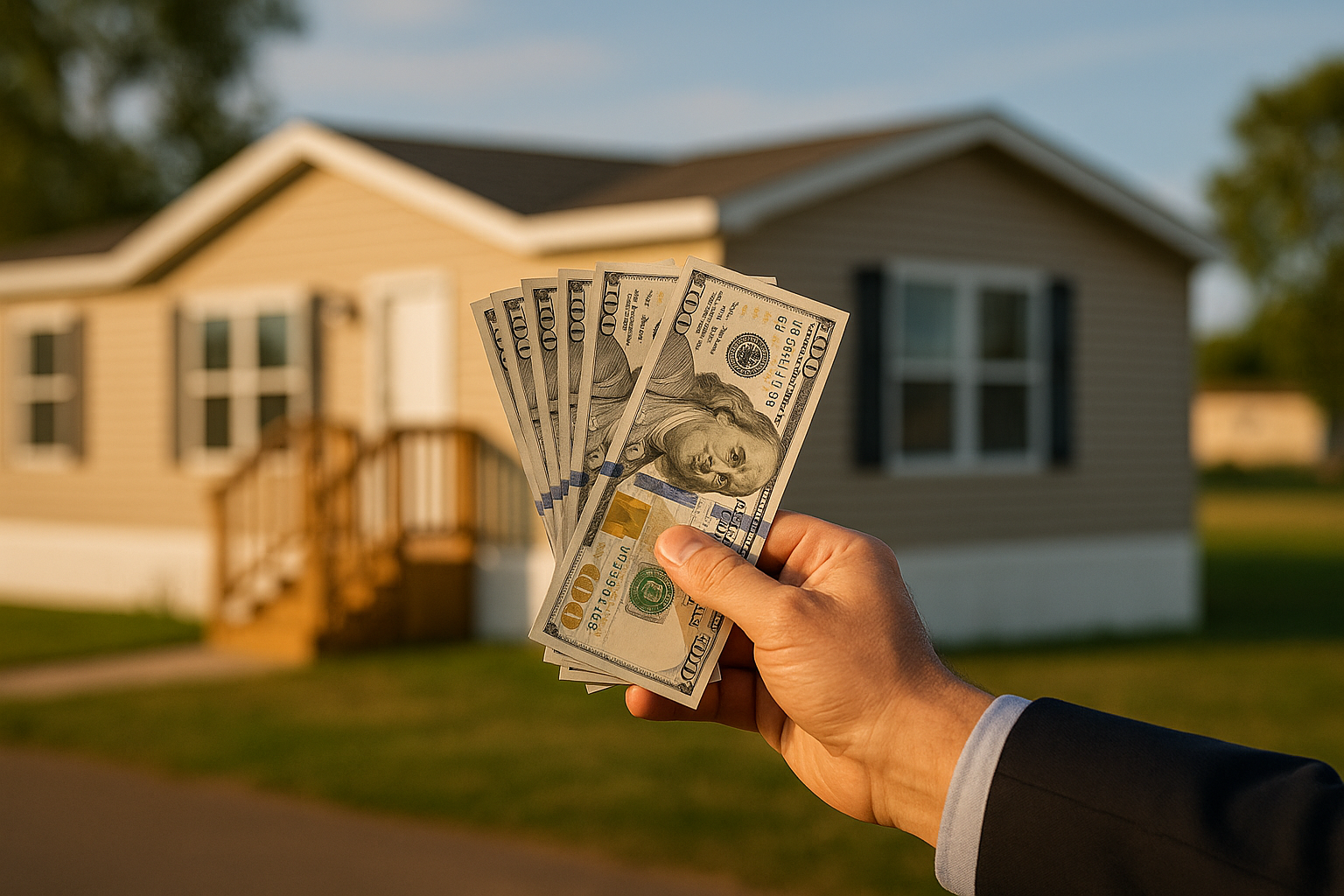Exploring Affordable Manufactured and Mobile Homes: A Comprehensive Guide
In today's housing market, finding affordable living options is more crucial than ever. Manufactured and mobile homes offer a viable solution for those seeking cost-effective housing without compromising on quality or comfort. In this article, we delve into the world of affordable manufactured and mobile homes, exploring their benefits, differences, financing options, and more.

Understanding Manufactured and Mobile Homes
The terms “manufactured” and “mobile” homes are often used interchangeably, but they represent different eras of factory-built housing. Mobile homes were constructed before 1976 and were built to varying standards. Manufactured homes, built after June 15, 1976, must comply with the federal HUD Code, ensuring consistent quality, safety, and energy efficiency standards.
Today’s manufactured homes feature modern designs, energy-efficient systems, and quality materials that rival traditional homes. They’re constructed in climate-controlled factories, reducing weather-related delays and material waste. Once completed, these homes are transported to permanent foundations or mobile home communities where they provide comfortable, affordable living spaces.
Benefits of Choosing Affordable Manufactured Homes
Manufactured homes offer numerous advantages that make them attractive housing options. The primary benefit is affordability – these homes typically cost 50-70% less than comparable site-built homes, making homeownership accessible to more families.
Quality construction is another significant advantage. Factory production allows for precise construction techniques, consistent material quality, and rigorous inspections throughout the building process. Modern manufactured homes include energy-efficient features like improved insulation, double-pane windows, and high-efficiency HVAC systems that reduce utility costs.
Customization options have expanded dramatically, with manufacturers offering various floor plans, exterior designs, and interior finishes. Many manufactured homes now feature open floor plans, cathedral ceilings, kitchen islands, and luxury amenities that create comfortable, modern living spaces.
Financing Options for Manufactured and Mobile Homes
Several financing paths exist for manufactured home purchases, though options vary based on whether the home is classified as real estate or personal property. When permanently affixed to owned land, manufactured homes typically qualify for traditional mortgages through FHA, VA, or conventional loans.
For homes in mobile home parks or on leased land, chattel loans are common. These personal property loans often carry higher interest rates and shorter terms than traditional mortgages but require lower down payments and have more flexible credit requirements.
Government-backed programs provide additional financing support. FHA Title I loans specifically serve manufactured home buyers, while VA loans help eligible veterans purchase manufactured homes. USDA Rural Development loans support manufactured home purchases in eligible rural areas.
Community Living: Mobile Home Parks
Mobile home parks offer unique community living experiences that combine affordable housing with shared amenities and social connections. These communities typically provide maintained roads, utilities infrastructure, recreational facilities, and professional management services.
Park living offers several advantages including lower entry costs since residents don’t purchase land, reduced maintenance responsibilities, and access to community amenities like pools, clubhouses, and recreational activities. Many parks cater to specific demographics, such as active adult communities or family-friendly environments.
However, residents should understand that they’re subject to park rules and potential rent increases for the land lease. It’s essential to review park regulations, lease terms, and the community’s long-term stability before making a commitment.
Real-World Cost Breakdown and Provider Comparison
Understanding the actual costs associated with manufactured homes helps buyers make informed decisions. Here’s a comparison of leading manufactured home providers and their typical price ranges:
| Provider | Home Size Range | Price Range | Key Features |
|---|---|---|---|
| Clayton Homes | 1,000-2,500 sq ft | $80,000-$180,000 | Energy Star certified, customizable designs |
| Champion Homes | 1,200-2,800 sq ft | $85,000-$200,000 | Premium materials, smart home technology |
| Fleetwood Homes | 900-2,400 sq ft | $75,000-$170,000 | Flexible floor plans, quality construction |
| Palm Harbor Homes | 1,100-3,000 sq ft | $90,000-$220,000 | Luxury finishes, custom options |
Prices, rates, or cost estimates mentioned in this article are based on the latest available information but may change over time. Independent research is advised before making financial decisions.
Challenges and Considerations
While manufactured homes offer many benefits, potential buyers should consider certain challenges. Depreciation can be a concern, particularly for homes classified as personal property rather than real estate. However, homes on permanent foundations in desirable areas often maintain or increase their value over time.
Zoning restrictions may limit placement options in some areas, as certain municipalities have regulations affecting where manufactured homes can be installed. Buyers should research local zoning laws and homeowners association restrictions before purchasing.
Insurance considerations differ from traditional homeowners insurance, often requiring specific manufactured home coverage. Additionally, financing terms may be less favorable than conventional mortgages, particularly for homes not permanently affixed to owned land.
Weather resistance has improved significantly with modern construction standards, but buyers in areas prone to severe weather should consider additional tie-downs and reinforcements for enhanced protection.
Manufactured and mobile homes continue to evolve as viable housing solutions, offering quality construction, modern amenities, and significant cost savings. By understanding the various options, financing possibilities, and potential challenges, prospective buyers can make informed decisions about whether manufactured home living aligns with their housing needs and financial goals.




